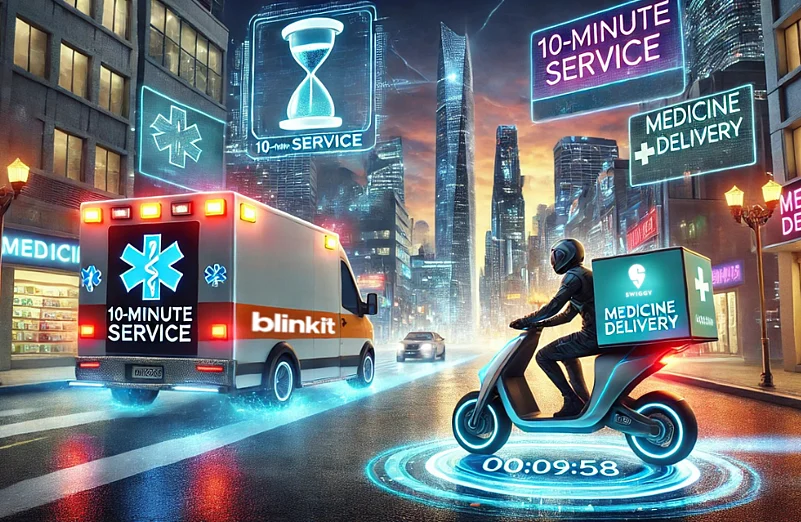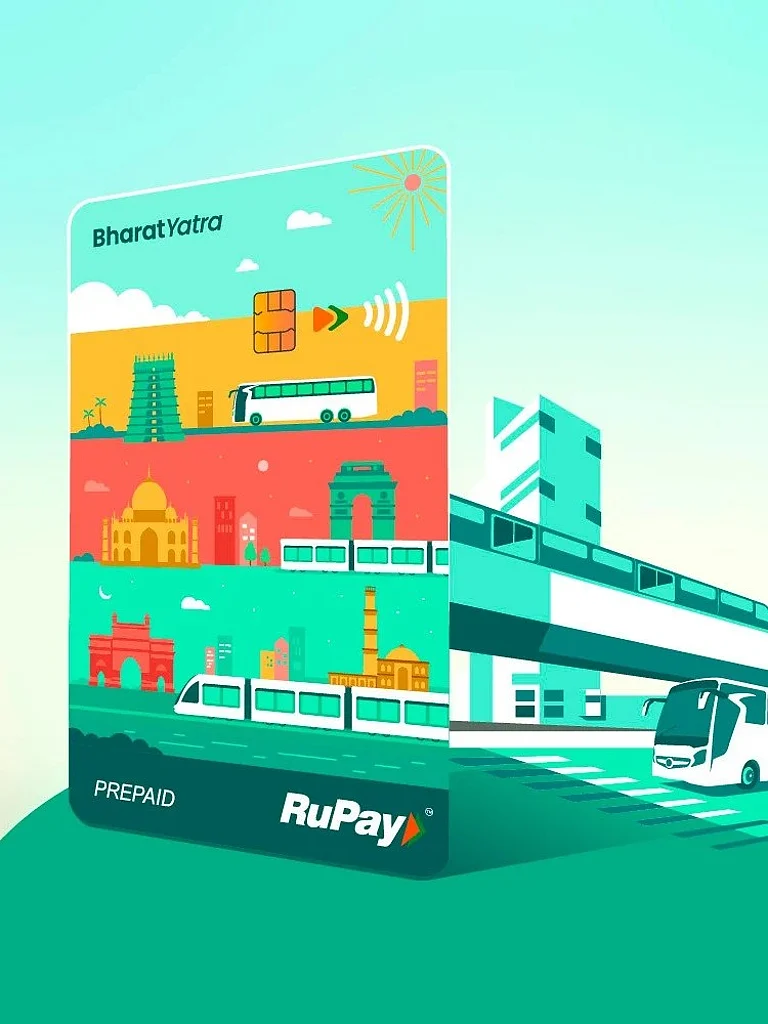In the world of 10-minute deliveries, where convenience at one’s doorstep is the new standard, every minute matters. But what happens when the same principle is applied to healthcare delivery? Quick commerce platforms can offer initial answers, with Zomato’s Blinkit and Swiggy’s Instamart, and e-commerce company Flipkart launching “quick” emergency services and critical medicine delivery.
In Gurugram, Blinkit launched a rapid-response ambulance service that delivers aid in 10 minutes. Meanwhile, Swiggy Instamart has entered into a partnership with PharmEasy for rapid delivery of medicines through its dark stores and Flipkart is preparing to launch a similar service, Flipkart Minutes, targeting medicine deliveries within 10 minutes. But the expansion plans have come with their share of hurdles.
Compliance with medical standards, staff training requirements, regulatory clearances and dispatch systems integrated with a global positioning system (GPS) for real-time tracking are some of the roadblocks to enter the healthcare sector. The All India Organisation of Chemists and Druggists (AIOCD) has also expressed concerns about 10-minute medicine deliveries, on the grounds that it can violate Indian drug regulations and pose health risks. Union commerce and industry minister Piyush Goyal has cautioned Blinkit to comply with the “law of the land” after it flagged off its rapid ambulance service.
“Quick commerce platforms will face significant compliance hurdles. These include obtaining necessary licences for handling medications, implementing robust prescription verification systems to prevent abuse and ensure patient safety, ensuring data privacy in compliance with healthcare regulations and maintaining proper storage conditions for temperature-sensitive products,” said Garima Malhotra, associate partner, Healthcare and Lifesciences at Praxis Global Alliance.
Money Matters
For investors, the challenges highlight the need for due diligence in evaluating such models before committing capital. “Scalability, unit economics, regulatory compliance are crucial factors which need to be evaluated before funding. We also assess market readiness, technological infrastructure and the competitive landscape before putting money in such ventures,” Navin Honagudi, managing partner, Elev8 Venture Partners told Outlook Business.
Founder of the venture capital (VC) firm All In Capital, Kushal Bhagia, said his parameters would include evaluating the sophistication of a company’s tech-stack, such as the prescription verification systems for pharmaceutical quick commerce, or real-time emergency coordination systems for response services, the network density of dark stores and last-mile delivery capabilities. There is, Bhagia said, a “clear evolution” in how investors evaluate healthcare investments.
For instance, Bhagia believes that healthcare start-up Farmako and Apollo Pharmacy’s 30-minute medicine delivery models validate the case for quick commerce in healthcare. Typically, the average order value for medicine delivery is higher than that of grocery, which ranges between Rs 800-Rs 1,200, has high repeat rates of around 50% a month and comparatively low delivery costs due to hub-and-spoke pharmacy models.
“Farmako hitting positive contribution margins within six months of operations validates this. And, Apollo’s 24x7 entry with 30-minute delivery is the most telling signal. When established healthcare players enter this space, it validates the model for both consumers and investors,” Bhagia said.
To name a few more, Shreyans Salecha, Investment Team at Good Capital shared an example of Orange Health and Babynama platforms who are already addressing India's healthcare challenges with rapid delivery model. Previously, people had to visit diagnostic centres and wait in lines for tests, then had to wait another 2-3 days to get results.
"But today, you have at-home collection and reports within hours. Convenience and speed are the keys. Orange Health was one of the earliest ones to move to this model," he said. Similarly, Babynama does the same for paediatric care with AI and tele-consultation.
Investing in Quick Healthcare
Despite these complexities, the quick healthcare space is a draw for investors who believe that start-ups working in this space can help address the challenges associated with India’s healthcare sector. According to data from Invest India, the country's e-pharmacy market is expected to grow at a compounded rate of 44 per cent to reach $4.5 billion by the end of 2025.
Brijesh Damodaran Nair, managing partner at Auxano Capital, said venture capitalists are likely to see both sectors as complementary rather than competing against each other. Citing the example of how the Unified Payments Interface (UPI) infrastructure revolutionised digital payments,
Navin Honagudi added, “Innovations in quick commerce healthcare such as rapid medicine deliveries and ambulance services could redefine health-tech investments. Such developments could encourage greater collaboration between the private sector and government.”
Similarly, a public-private partnership in healthcare can create a supportive ecosystem for scaling up solutions, reducing costs and improving access to care in underserved regions. Thus, investors see strong potential in quick healthcare models for venture capital investments, Honagudi said.
In 2024, the quick-commerce sector saw a significant jump in funding, raising $1.37bn in equity funding across seven rounds—driven by the quick-commerce company Zepto raising $1.35bn, reported data intelligence platform Tracxn.
“Healthcare delivery adds a layer of essentiality and potential social impact, which could attract a broader range of investors, including those focused on health tech. This shift would likely appeal to VCs seeking opportunities in sectors with both high-growth potential and resilience, as healthcare services address critical, non-discretionary needs,” said Honagudi.
All In Capital echoed similar sentiments, stating that quick healthcare carries the potential to solve a number of problems in the healthcare sector. “Issues such as poor emergency response infrastructure, with ambulance response times averaging 45+ minutes in metros and limited access to 24x7 pharmacies, combined with India’s high population density and a growing middle-class willing to pay for convenience, make quick healthcare a promising bet,” Bhagia said.
Another VC firm which invest in healthcare sector, Good Capital also shares the same excitement about the transformative potential of healthcare. Salecha said what 'quick' did to commerce recently, 'personalisation' could do to the healthcare sector.
In a nutshell, established players are validating this model and a growing market demand for convenience and reliability, quick healthcare may become a cornerstone of India’s evolving health-tech landscape. As investments and public-private partnerships shall grow in the years to come, this sector could significantly enhance care delivery and impact lives nationwide.
































